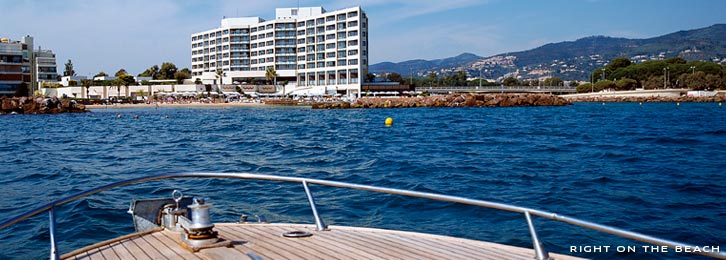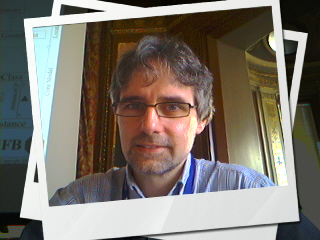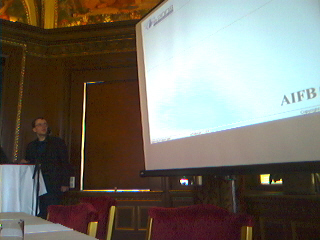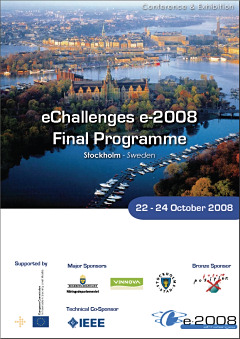25 October 2008
Nubiq Wins Best of Mobile Internet World 2008 Innovation Award
Nubiq has won a Mobile Internet World 2008 Innovation Award: Most Innovative Consumer Mobile Internet Deployment. This was announced at the Mobile Internet 2008 conference in Boston last week. Congratulations to Hélene and all the team!
24 October 2008
Advent 4211 Netbook

There is key change happening in the world of end user devices for the Internet. Here I am not talking about the move to smart phones, and the possibility that much Internet access in the future will be from such mobile devices rather than from desktop and laptop PCs - though that is indeed an important trend. No, I am talking about the rise of a new type of devices that bridges the gap between a mobile phone and a laptop - a mini-laptop, or sub-laptop, called a netbook.
This movement may have been started by Nicholas Negroponte's OLPC (One Laptop Per Child), but its effects are now seen in the lauch in 2007 of the Eee PC, a netbook with limited hardware, but a fully functional laptop with a keyboard, screen and trackpad/buttons nevertheless.
The second iteration of netbooks, with many other providers jumping on this bandwagon, were launched in the summer of 2008. I purchased one of these, an Advent 4211, effectively a re-badged MSI Wind, for €365 (including 2 years warranty) from pixmania.ie, including VAT and delivery. This came with Windows XP Home, a 1024x600 screen (but VGA out to drive larger screens if needed), an Intel Atom N270 processor, 1GB RAM, 80GB hard disk. Note that other MSI Wind models have solid state storage rather than hard disks, but I went for the Advent that only came with a traditional hard disk. Note that many netbooks use Linux Operating System rather than Windows, Advent only comes with Windows, but I've since installed kubuntu as a dual-boot alternative.
The good things about the netbook are:
- It is very light (1.3kg) and small enough to balance on one knee;
- It is a fully featured Operating System (Windows or Linux) so can run any application that those OSs support;
- It has a fully functional keyboard;
- You can open it fully on an economy aircraft table;
- It is so cheap you could consider buying one for many purposes, for example unobtrusive seating room use;
- The SDHC slot can take up to 16GB cards that help to make up for the lack of optical drives (CD/DVD).
The main negatives are:
- No optical drive (CD/DVD)l
- Cheap tracker pad and buttons take some getting used to;
- Limited screen size, especially the 600 pixel height, does inhibit some types of applications;
- Battery life is poor at just over 2h on a full charge - there may be a newer better battery which would be a good upgrade if doing a lot of mobile working.
My conclusion was that it was perfect for me as a lightweight travel laptop. Also it provided me an ideal opportunity to experiment with the use of Linux as a primary laptop/desktop.
I installed kubuntu (Hard Heron) from an external USB DVD, on the machine and came across a number of issues. One was an issue that had bothered me on some ubuntu desktops before. I use IMAP email, and typically I use either Apples Mail.app or Mozilla Thunderbird. Over the years I have optimised my email folder structure using underscores to put important folders earlier in the sort order. the default settings in ubuntu and kubuntu (when I had set my location as Ireland) was for a strange sort order where the underscore files sorted as if there were no underscores. I had investigated this briefly before, and concluded that this was an underlying OS issue, rather than a application issue. The spotlight fell on the "locale" settings. After discussing this with Rotan Hanrahan, who happened to have Open SuSE installed on his laptop, we managed to figure out that what I needed was to set the locale variable "LC_COLLATE" to a value of "POSIX" rather than "en_IE.UTF-8". In kubuntu this can be changed using:
$ sudo update-locale LC_COLLATE=POSIXand restarting the X-Windows session. This worked a treat leaving my locale settings as:
LANG=en_IE.UTF-8 LANGUAGE=en_IE:en LC_CTYPE="en_IE.UTF-8" LC_NUMERIC="en_IE.UTF-8" LC_TIME="en_IE.UTF-8" LC_COLLATE=POSIX LC_MONETARY="en_IE.UTF-8" LC_MESSAGES="en_IE.UTF-8" LC_PAPER="en_IE.UTF-8" LC_NAME="en_IE.UTF-8" LC_ADDRESS="en_IE.UTF-8" LC_TELEPHONE="en_IE.UTF-8" LC_MEASUREMENT="en_IE.UTF-8" LC_IDENTIFICATION="en_IE.UTF-8"So that I could access my Euro symbol, and the accented characters I needed for Irish (e.g. my own name), but the sort order I was expecting was restored.
So now all I need to figure out is how to get the sort order fixed on applications like Thunderbird in OS X :-)
23 October 2008
W3C TPAC 2008, Nice

I am at the Advisory Committee meeting of the W3C in Mandelieu, near Nice in France. As usual it is a great buzz with loads of people trying to progress web standards and related standards. The rules of the meeting are such that I cannot blog directly about the contents of the meeting itself - fair enough!
However, the AC (Advisory Committee) meeting is co-located with a TP (Technical Plenary) meeting, many aspects of the latter are more public. Starting at the public W3C TPAC 2008 web page, or the news posting on the W3C front page, will lead to the stuff that is public. Some staff members are also blogging here.
22 October 2008
eChallenges Snapshots
Mícheál Ó Foghlú, TSSG, Waterford Institute of Technology, Ireland

Michael Decker, University of Karlsrue, Germany

One-Page Self-Editing Wikis: TiddlyWiki
I have just discovered JeremyRuston's Open Source TiddlyWiki - a reusable non-linear personal web notebook. Very interesting. The Wiki is imolemented in Javascript within the HTML file itself - and it updates itself with new content.
I am still more of a blog guy than a WiKi guy at heart, but the ease of this (for those who understand Wikis) is interesting.
Scenario: lecturer uses one TiddlyWiki on her/his laptop to edit the slides for a lecture. When ready, they are published to a place where the student can access. Then these could be allowed to be edited by the class and resubmitted to the class - perhaps with each student having one section to expand or give a critique on via a number of new slides (WiKi entries).
Scenario: anyone who is comfortable with it use TiddlyWiki as a personal note taking tool, that captures information in hypertext as linked web pages but authored as a Wiki and saveable as a single file - easy to archive or distribute.
Thanks to Stephan Raimer, TPC member of eChallenges, for alerting me to these possibilities.
By the way, the story of the TiddlyWiki author is very interesting. BT acquired his open source company in May 2007, established osmosoft, and has been using this as what seems to be a kind of open source skunk works team.... one to watch.
21 October 2008
eChallenges 2008

I am here in Stockholm for the first day of the eChallenges 2008 conference tomorrow, Wednesday 22nd October 2008.
I have been involved in this conference series since Venice in 2001 when I presented a paper on the work of SEISS in the south east of Ireland, creating a forum for public and private sector interests to come together under an Information Society banner. The SEISS work led to a successful bid for regional broadband investment, the SERPENT project, that saw fibre installed in the regional towns and cities.
Since then I became involved in the Technical Programme Committee and I have watched as this conference has matured and grown, where it now regularly has over 600 delegates. The core driver for the conference is the EU research programme, but the conference is much more than that.
I like the eclectic mix that this involves. You get public sector folks, working on eGovernment projects, who have one spin on things. You get lots of European industrial/commercial folks with another spin. And you also get academics who are always spinning. There are enough important decision makers from all of these areas, to make it worth coming; and enough technical people as well so that some of what is said is grounded in what is actually possible. So all in all a very enjoyable event.
Thanks to Miriam and Paul Cunningham, who've steered the conference since 2003, for keeping such a healthy balance going throughout this period.